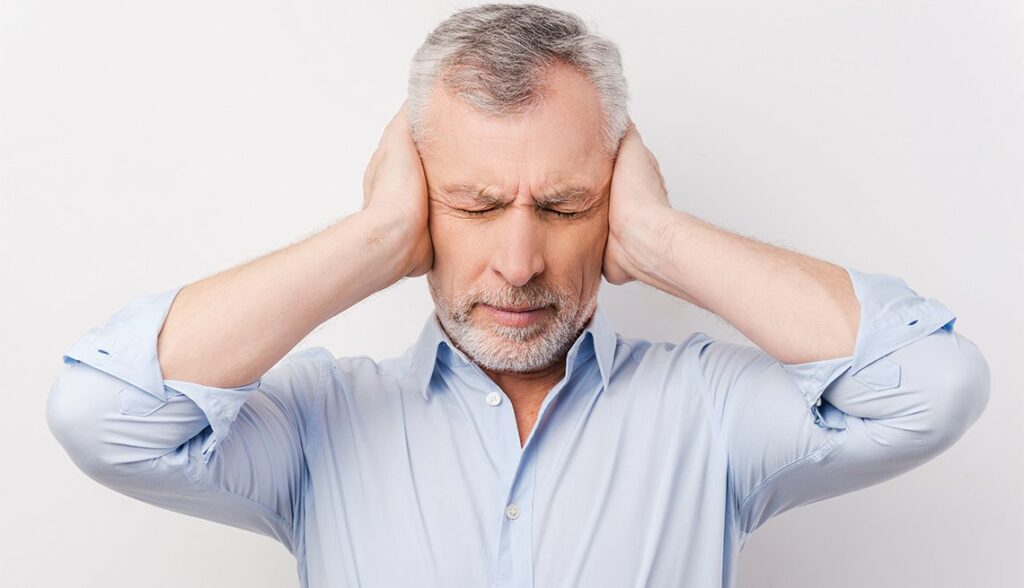Noise sensitivity is a condition that affects many people. For those who have it, everyday noises can be overwhelming and cause a great deal of anxiety. If you are one of the people who suffer from noise sensitivity, you know how difficult it can be to live a normal life. This blog post will discuss some of the basics of noise sensitivity anxiety, including what causes them and how it can be treated.
Contents
What Does Noise Sensitivity Anxiety Mean?
 Noise sensitivity anxiety is typically defined as a heightened sensitivity to specific sounds. This is different from a fear of loud noises, which is known as phonophobia. People with noise sensitivity may be sensitive to all sorts of sounds, including those that are normally considered to be innocuous or even pleasant. For some people, the anxiety caused by noise sensitivity can be so severe that it interferes with their daily lives.
Noise sensitivity anxiety is typically defined as a heightened sensitivity to specific sounds. This is different from a fear of loud noises, which is known as phonophobia. People with noise sensitivity may be sensitive to all sorts of sounds, including those that are normally considered to be innocuous or even pleasant. For some people, the anxiety caused by noise sensitivity can be so severe that it interferes with their daily lives.
Moreover, noise sensitivity anxiety refers to more than just a dislike of certain sounds. For many people, it can also cause physical discomfort and even pain. And in some cases, it may lead to a full-blown panic attack. Noise sensitivity anxiety is often comorbid with other conditions, such as anxiety disorders, depression, and post-traumatic stress disorder (PTSD).
It is more often considered Misophobia or Scopophobia. And, noise sensitivity is very common in people who are suffering from OCD. It is important to understand that people with this condition are not simply being “picky” about noise. Rather, they are experiencing a real and debilitating form of anxiety.
Noise sensitivity anxiety is very common in OCD and it is basically a type of OCD. If you are suffering from this type of anxiety, it is important to seek professional help. This can be very difficult to live with and it can make your life very difficult.
What Are The Signs Of Noise Sensitivity Anxiety?
There are many signs of noise sensitivity anxiety, but some of the most common include:
- feeling anxious or stressed in situations where there is a lot of noise (e.g., concerts, nightclubs, crowded places)
- avoiding noisy places altogether
- feeling like you can’t concentrate when there is background noise
- being easily startled by loud noises
- having trouble sleeping because of noise (e.g., from neighbors, traffic)
- feeling irritable or on edge when exposed to noise
These are some of the most common signs, but noise sensitivity anxiety can manifest in different ways for different people. It is important to talk to a mental health professional if this is taking a toll on your day-to-day life.
In fact, recognizing the signs of noise sensitivity anxiety is the first step in getting treatment. If you are experiencing any of the above symptoms, it is important to reach out for help. Also, you must not suffer in silence, please understand that this is a real anxiety disorder that can be treated.
What Causes Noise Sensitivity Anxiety?
 When you have difficulties in processing and interpreting certain types of sounds. Then, you may suffer from a condition known as noise sensitivity anxiety. This can be caused by many different things, including:
When you have difficulties in processing and interpreting certain types of sounds. Then, you may suffer from a condition known as noise sensitivity anxiety. This can be caused by many different things, including:
Traumatic Event
Traumatic event or occurrence is the most common reason for people developing noise sensitivity anxiety. It could be something like a car accident, a natural disaster, or even just a loud noise that startled you. This event then causes your brain to misinterpret certain noises as being dangerous. Moreover, this can lead to you feeling anxious or even panicked when you hear those noises again.
Medical Condition
There are also many medical conditions that can cause noise sensitivity anxiety. These include hearing loss, Meniere’s disease, migraines, and tinnitus. Moreover, this can also be a side effect of certain medications. If you think that your noise sensitivity anxiety might be due to a medical condition, then you should speak to your doctor about it.
Sensory Processing Disorder
It is also the cause that majorly affects children. It is a neurological disorder that makes it difficult for your brain to process certain types of sensory information. This can include both sight and sound. As a result, people with this condition often have difficulty in loud or crowded places. Additionally, they may also startle easily or have a hard time filtering out background noise.
Other Anxiety Disorders
 This can be a symptom of other anxiety disorders as well, such as social anxiety disorder or generalized anxiety disorder. If you have another anxiety disorder, then you may be more likely to develop noise sensitivity anxiety. This is because your brain is already in a heightened state of anxiety, which can make it more difficult to process and interpret certain sounds.
This can be a symptom of other anxiety disorders as well, such as social anxiety disorder or generalized anxiety disorder. If you have another anxiety disorder, then you may be more likely to develop noise sensitivity anxiety. This is because your brain is already in a heightened state of anxiety, which can make it more difficult to process and interpret certain sounds.
These are the most common causes of noise sensitivity anxiety. If you think that you might have this condition, then you should speak to your doctor about it. Noise sensitivity anxiety can be a difficult condition to live with. Moreover, this can also lead to social isolation as well as other problems.
Diagnosis For Noise Sensitivity Anxiety
Although there are no specific tests to diagnose noise sensitivity anxiety, your doctor may want to rule out other conditions that could be causing your symptoms. However, it is important to keep in mind that it is important to consult with a mental health professional to get an accurate diagnosis.
They can help you better and diagnose you if you have this type of OCD disorder by doing a psychological evaluation. In that evaluation, they will ask you questions about your symptoms and how they affect your day-to-day life. This works to rule out other conditions that could be causing your symptoms. The questionnaire may as well ask about your family history and if there are any other mental health conditions that run in your family.
Your doctor may also want to rule out the physical causes of your symptoms. To do this, they may order a hearing test or other tests to rule out other conditions. These physical tests can help rule out other causes of your symptoms and give your doctor a better idea of what is going on.
The diagnosis can be tricky because there are no specific tests for it. However, your doctor can rule out other conditions and get a better understanding of what is going on by doing a psychological evaluation. And ruling out physical causes. If you think you may have this condition, talk to your doctor about your symptoms and how they affect your life.
How To Treat Noise Sensitivity Anxiety?
 In OCD, noise sensitivity anxiety can be treated with a type of therapy called Exposure and Response Prevention (ERP). ERP is an effective, evidence-based treatment for OCD that involves gradually exposing yourself to the things that trigger your OCD symptoms in a safe and controlled way. During exposure therapy, you’ll work with a therapist to identify your specific triggers and then systematically expose yourself to them.
In OCD, noise sensitivity anxiety can be treated with a type of therapy called Exposure and Response Prevention (ERP). ERP is an effective, evidence-based treatment for OCD that involves gradually exposing yourself to the things that trigger your OCD symptoms in a safe and controlled way. During exposure therapy, you’ll work with a therapist to identify your specific triggers and then systematically expose yourself to them.
For example, if loud noises trigger your anxiety, you might start by listening to soft music. Or white noise for a short period of time each day. Then, you would gradually increase the volume over time until you’re able to listen to loud noises without feeling anxious. After exposure to therapy, most people find that their anxiety decreases significantly. In fact, research shows that exposure therapy is an effective treatment for OCD.
However, ERP may not be sufficient for treating noise sensitivity anxiety on its own. Some people may require medication in addition to exposure therapy. If you’re considering medication for your anxiety, it’s important to talk to a psychiatrist or other mental health professional about your options.
Some self-help tips can also be helpful in managing noise sensitivity anxiety. For example, try to avoid situations that trigger your anxiety. If you know you’ll be exposed to loud noises, try to relax beforehand by listening to soft music or taking deep breaths. And if you feel anxious during exposure, remind yourself that it’s only temporary and that you can handle it.
The condition can be a difficult condition to live with, but treatment can help. You can try Mantra Care for your daily relaxation and ease your anxiety. With the help of a mental health professional, you can find the treatment that works best for you and start living a more peaceful life.
Conclusion
To conclude, noise sensitivity anxiety is a real and debilitating condition that can severely impact your quality of life. In fact, it can lead to full-blown panic attacks and agoraphobia. If you think you might be suffering from this condition, please reach out to a qualified mental health professional for help. With proper treatment, it can be managed and you can live a happy, healthy life. Book your free consultation today to learn more about the condition and effective treatment options.
If you are looking for affordable Online OCD Counseling MantraCare can help: Book a trial OCD therapy session


